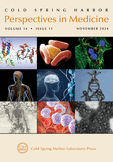Accessory Gene Products of Influenza A Virus
- Correspondence: paul.digard{at}roslin.ed.ac.uk
Abstract
Influenza A virus has long been known to encode 10 major polypeptides, produced, almost without exception, by every natural isolate of the virus. These polypeptides are expressed in readily detectable amounts during infection and are either fully essential or their loss severely attenuates virus replication. More recent work has shown that this core proteome is elaborated by expression of a suite of accessory gene products that tend to be expressed at lower levels through noncanonical transcriptional and/or translational events. Expression and activity of these accessory proteins varies between virus strains and is nonessential (sometimes inconsequential) for virus replication in cell culture, but in many cases has been shown to affect virulence and/or transmission in vivo. This review describes, when known, the expression mechanisms and functions of this influenza A virus accessory proteome and discusses its significance and evolution.










